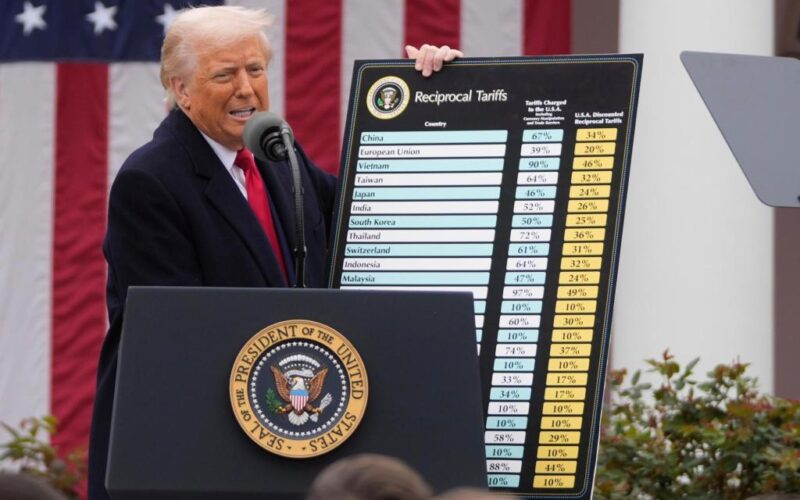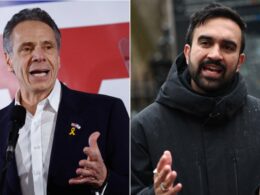Yesterday, D.C. Federal Judge Rudolph Contreras ruled that Donald Trump’s marquee economic policy, his disastrous across-the-board and chaotic tariffs, were unlawful. That ruling ultimately did not have much effect on its own, only because it closely followed a separate ruling by a three-judge panel of the U.S. Court of International Trade also overruling the policies.
Most people have a sense that legal principles and arguments are relatively inscrutable to the average Joe. That might often be the case, but there are some that are straightforward to the point that anyone can grasp them. In this instance, no one disputes that the law that Trump is leaning on to impose these tariffs only authorizes such a move under “unusual and extraordinary threat.”
Similarly to his invocation of the Alien Enemies Act, the administration has not remotely established that there is a real emergency under any potential understanding of that term.
Rather, Trump and his economic officials have decried economic circumstances that have developed slowly over decades and are attempting some kind of intuitive (and counterproductive) quick fix to address them. Trump and his advisors can’t seem to decide whether what they want is more favorable trade terms with other countries or to shut down imports altogether to force some kind of manufacturing revitalization in the U.S., but in either case, this is not some sudden emergency situation.
However, there is no acute threat to the economy, except of course for the tariffs themselves.
It’s a marker of how immensely misguided the policy is, and how intense Trump‘s capture of the legislative branch, that the fundamental legality of the tariffs was often a secondary conversation. Most commentators and experts are focused on the extreme economic and geopolitical damage of the tariffs themselves, while GOP lawmakers stand by, happy to let Trump flagrantly sidestep a law Congress had written.
This sordid saga is an excellent representation of Trump’s strategy of barreling through laws and constraints until somebody forces him to stop. A finding that the tariffs were unlawful now comes weeks after the ridiculous April 2 “Liberation Day” already caused significant damage in ways that will probably be irreversible, and as the administration claims to be in advanced negotiations with multiple countries over an economic policy that has now been found not legal.
Other nations, witnessing the back-and-forth and the dysfunction, have already moved towards a strategic stepping back from the United States on trade. Meanwhile, domestic businesses that rely on imports or imported parts have already begun laying people off or closing.
Now, we’ll have to see whether and how the administration reacts, because apparently we exist in a circumstance where the president feels that he can unilaterally determine if the federal government will adhere to what the courts have ordered.
As it becomes ever-clearer that Trump sees this as a power that he possesses, judges should take care not to relinquish theirs, which means moving — as several have in various immigration-related cases that have been brought — to hold individual federal officials accountable, including potentially in contempt of court.
That’s not a light decision to make, but seems increasingly appropriate as the administration simply refuses to treat the courts as a coequal branch of government.








